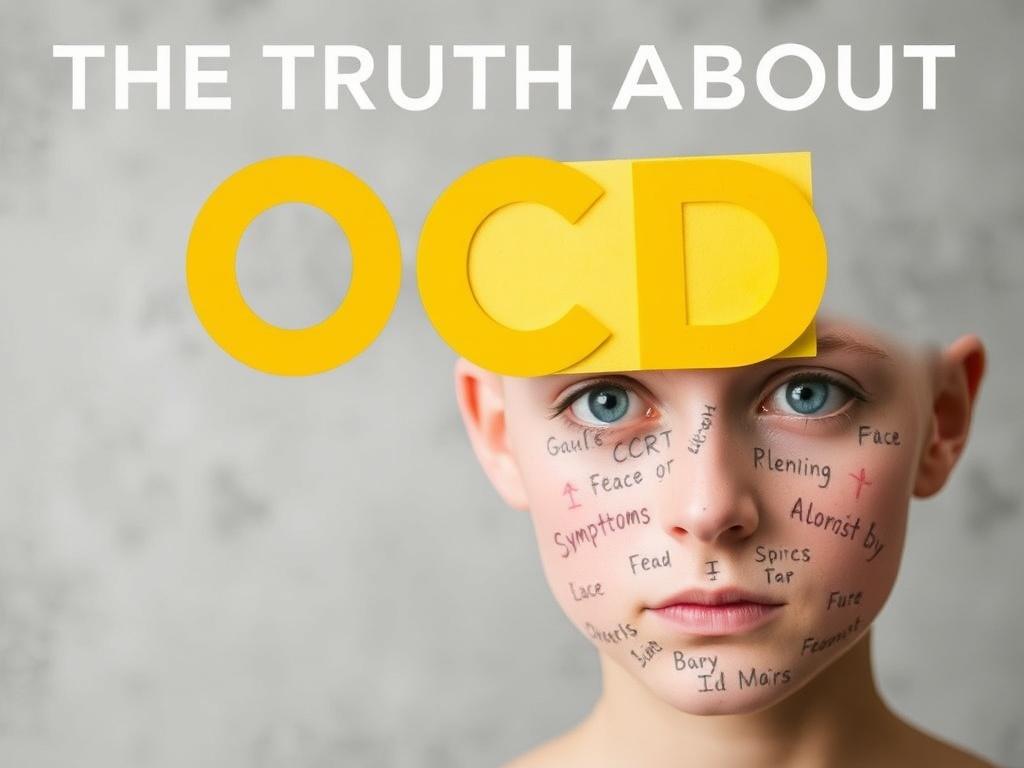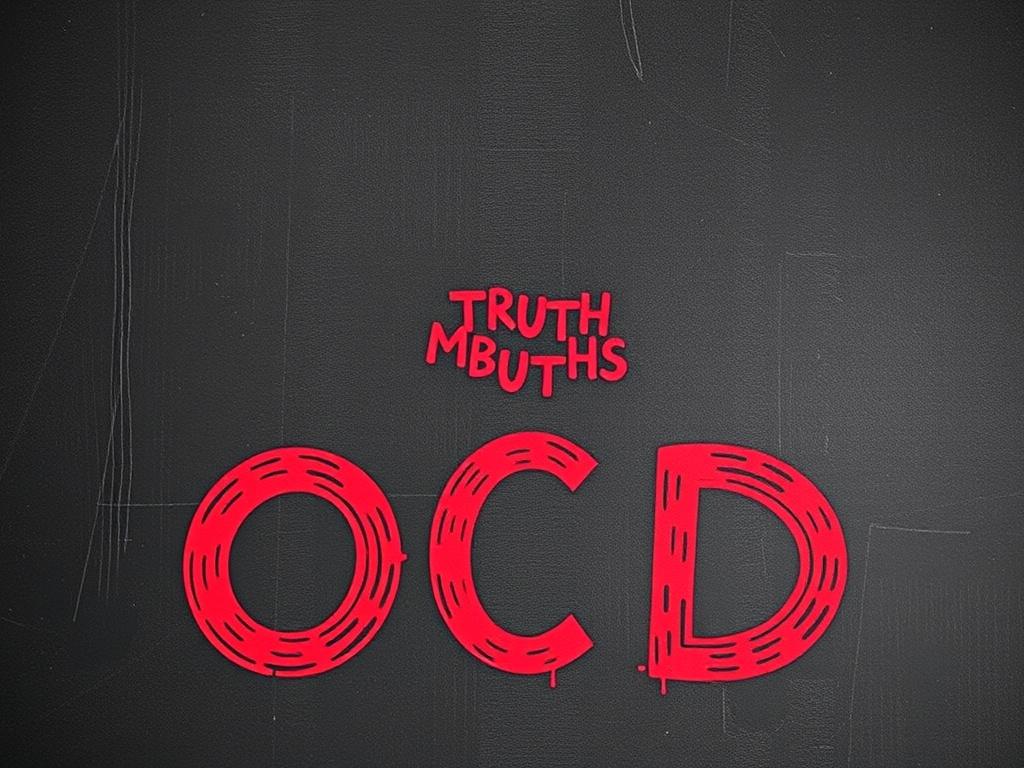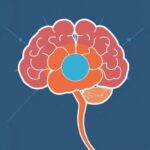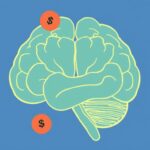Obsessive-Compulsive Disorder, commonly known as OCD, is a condition that is often misunderstood and misrepresented. Many people think of it as simply being overly tidy or liking things a certain way, but the reality is far more complex and serious. OCD is a mental health disorder that affects millions of individuals worldwide, disrupting daily life and causing intense distress. This article aims to unravel the truth about OCD by exploring what it really means, the symptoms, causes, treatment options, and how to live well with it. Whether you have OCD yourself or know someone who struggles with it, understanding the disorder on a deeper level can foster greater empathy and support.
What is OCD?
OCD is classified as an anxiety disorder characterized by uncontrollable, recurring thoughts (obsessions) and behaviors (compulsions) that a person feels compelled to repeat. These obsessions can be distressing, intrusive thoughts related to fears or doubts. To alleviate the anxiety caused by these thoughts, individuals perform repetitive actions or rituals. It’s important to understand that the cycle of obsessions and compulsions is not just a habit but a struggle that occupies significant amounts of mental energy and time.
Many people confuse OCD with simply liking order or being detail-oriented, but this disorder transcends these simple habits. The compulsions are often performed to prevent some dreaded event or situation; however, these behaviors are not realistically connected to what they aim to prevent. The person with OCD is aware that their obsessions and compulsions are irrational, but feels powerless to stop them.
Common Symptoms of OCD

Recognizing OCD can be tricky because symptoms vary widely among individuals. However, some common obsessions and compulsions include:
- Obsessions: Excessive fears of contamination, a need for symmetry or exactness, aggressive or taboo thoughts, fear of losing control, or intrusive sexual thoughts.
- Compulsions: Excessive cleaning or washing, repetitive checking (doors, locks, appliances), counting, arranging items in a particular order, or repeating words or phrases silently.
Here is a breakdown of some of the most frequent obsessions and compulsions reported by people with OCD:
| Obsessions | Compulsions |
|---|---|
| Fear of germs or contamination | Repeated hand washing or cleaning |
| Fear of harming oneself or others | Repeated checking (e.g., if doors are locked) |
| Need for symmetry or exactness | Arranging items in a specific way |
| Unwanted taboo thoughts (sexual, religious) | Mental rituals or repeated prayers |
| Fear of losing control or making a mistake | Repetitive counting or repeating certain words |
These symptoms can consume hours of a person’s day, making normal functioning difficult. The anxiety often increases if compulsions are delayed or prevented.
The Causes and Triggers of OCD

Scientists are still working to fully understand what causes OCD. It appears that a mix of genetic, neurological, behavioral, cognitive, and environmental factors contribute to the disorder. For some, OCD seems to run in families, suggesting a hereditary component. Brain imaging studies have shown that certain areas related to decision making and impulse control function differently in people with OCD.
Environmental stressors such as trauma, illness, or significant life changes can trigger the onset or worsening of symptoms. Some researchers believe that OCD might be linked to how the brain processes information and handles threats, but more research is needed to clarify these mechanisms.
Interestingly, the development of OCD may partially have to do with how the brain manages uncertainty and doubt. A person with OCD might struggle disproportionately with uncertainty, leading to obsessive thoughts and attempts to reduce doubt through compulsive behaviors.
Risk Factors
There are some risk factors that increase the likelihood of developing OCD:
- Family history of OCD or other anxiety disorders
- Childhood trauma or adverse experiences
- Infection or autoimmune reactions, particularly in children (PANDAS)
- Early exposure to stress and anxiety-provoking situations
Understanding these factors helps doctors and therapists identify OCD early and offer appropriate help.
How OCD Affects Daily Life
Living with OCD can be exhausting. The time spent on compulsions can interfere with work, school, and relationships. Many individuals with OCD experience shame or embarrassment because their thoughts and behaviors seem unusual or irrational to others. This can lead to isolation and increased anxiety.
For example, someone who fears contamination may avoid social events to prevent contact with bacteria. A person obsessed with symmetry may spend hours arranging objects at home multiple times a day. This disruption significantly lowers quality of life and can also trigger other mental health issues such as depression.
People with OCD often develop a heightened sense of responsibility, feeling as though they alone are responsible for preventing terrible outcomes. This burden can weigh heavily and limit freedom.
Common Challenges Faced by People With OCD
- Difficulty maintaining relationships due to misunderstood behaviors
- Impaired performance at work or school because of time-consuming compulsions
- Emotional distress and feelings of guilt or shame
- Struggles with comorbid conditions like depression or other anxiety disorders
Raising awareness and empathy about these challenges is crucial, so those with OCD feel supported rather than judged.
Treatment Options: Managing OCD Effectively
The great news is that OCD is treatable. However, treatment often requires patience and persistence, as symptoms may fluctuate over time. Most effective treatment approaches involve a combination of therapy, medication, and lifestyle adjustments.
Cognitive Behavioral Therapy (CBT) and Exposure Response Prevention (ERP)
CBT is regarded as the gold standard treatment for OCD. It helps individuals recognize and change distorted thought patterns causing obsessive thoughts. A specialized form of CBT known as Exposure and Response Prevention (ERP) involves gradual exposure to the feared object or thought without engaging in the compulsion. Over time, this helps reduce anxiety and breaks the obsessive-compulsive cycle.
Medications
Certain antidepressants, particularly selective serotonin reuptake inhibitors (SSRIs), are commonly prescribed to help reduce OCD symptoms. These medications can help balance brain chemistry and lessen obsessive thoughts, but they may take weeks to months to show full benefits. Sometimes, a psychiatrist may prescribe other medications depending on the severity and patient needs.
Other Treatment Approaches
In rare or severe cases, additional options like deep brain stimulation or other neuromodulation techniques may be considered. Complementary therapies such as mindfulness, yoga, and support groups often help manage stress and provide emotional support.
Living Well with OCD: Tips for Patients and Families
Managing OCD is often a lifelong journey, but many people live fulfilling lives despite the disorder. Here are some practical tips for those coping with OCD and their loved ones:
- Stay informed: Learning about OCD reduces fear and stigma around the condition.
- Build a support system: Connect with therapists, support groups, and understanding friends or family.
- Practice self-care: Healthy sleep, diet, and exercise have a surprisingly positive impact on mental health.
- Avoid avoidance: Engage with feared situations gradually rather than avoiding them completely.
- Celebrate progress: Even small improvements are steps in the right direction.
For family and friends, patience and empathy go a long way. Avoid telling the person to “just stop” their behaviors since OCD compels them beyond simple willpower. Instead, offer reassurance and encourage professional help.
Helpful Resources and Support Groups
Many organizations offer helpful resources for those dealing with OCD, including:
| Organization | What They Offer |
|---|---|
| International OCD Foundation (IOCDF) | Information, clinician directories, support groups, treatment resources |
| National Alliance on Mental Illness (NAMI) | Education, advocacy, and local support groups |
| Anxiety and Depression Association of America (ADAA) | Articles, mind-body techniques, therapy referrals |
Knowing you are not alone can be a powerful motivator on the road to recovery.
Debunking Myths About OCD

Because OCD is often portrayed inaccurately in media and everyday speech, myths and stereotypes abound. Here are some truths that counter common misconceptions:
- Myth: OCD is just being neat or organized.
Reality: OCD is a serious disorder involving distressing intrusive thoughts and compulsions that interfere with daily functioning. - Myth: People with OCD can stop if they try harder.
Reality: OCD compels behaviors beyond conscious control and requires treatment to manage. - Myth: OCD only affects certain types of people.
Reality: OCD can affect anyone regardless of age, gender, or background.
Breaking down these myths helps reduce stigma and supports those living with OCD in seeking help without shame.
Conclusion
Understanding the truth about OCD is crucial in fostering compassion and effective support for those impacted by it. Far from being a quirky personality trait or a simple preference, OCD is a complex mental health disorder that can deeply disrupt life. Through awareness of its symptoms, causes, and treatment options, individuals can seek the help they need and others can offer meaningful support. Progress may take time, but with proper care, education, and community, people with OCD can live rich, fulfilling lives. Dispelling myths and encouraging empathy allows us to build a world where mental health challenges are met with understanding rather than judgment.




















